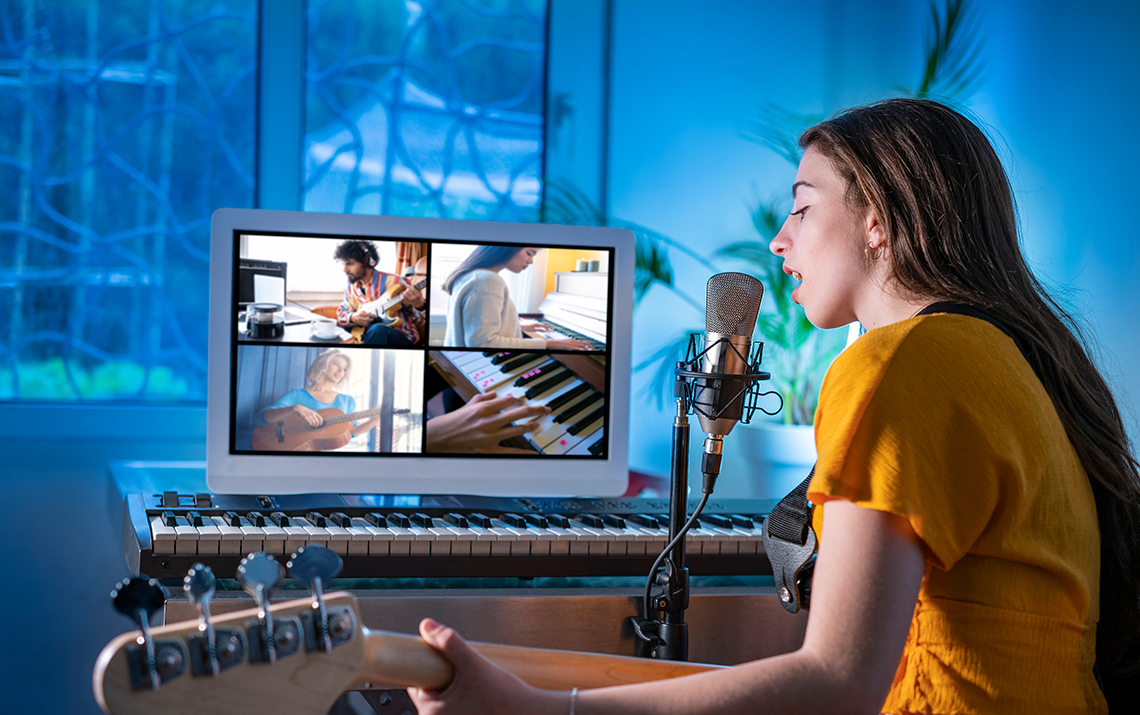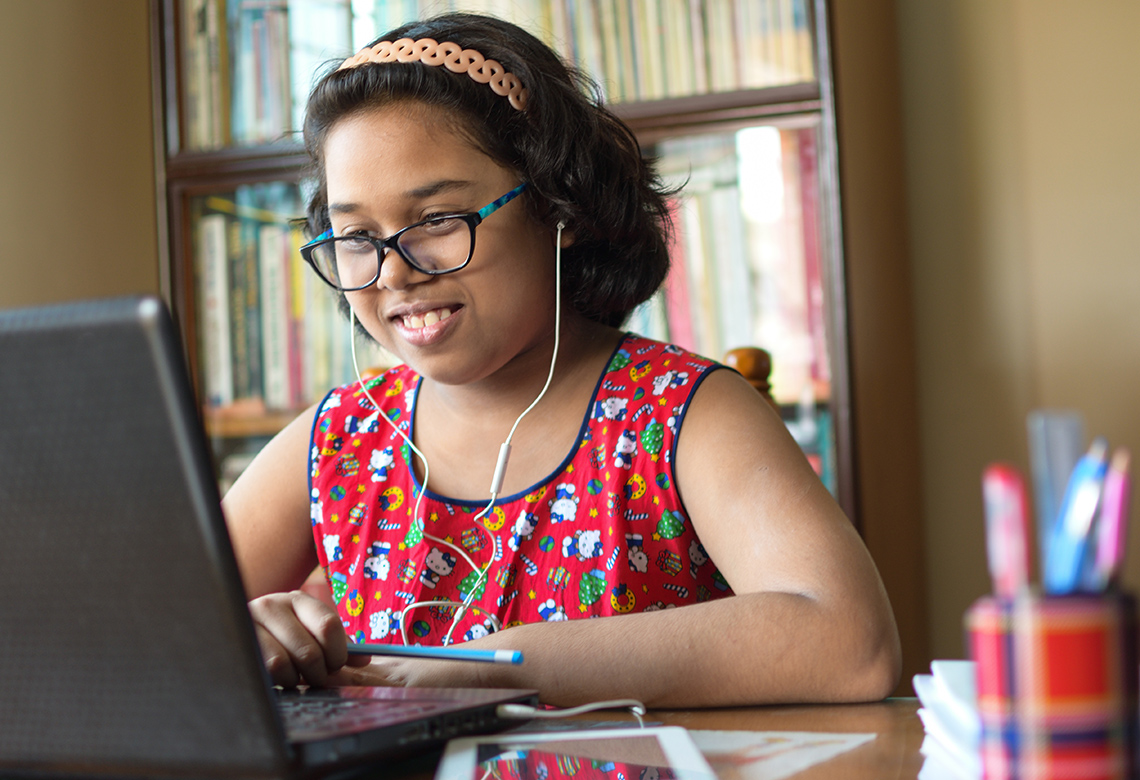Minds On
Let’s get started!

Explore the following quote.
Think about what this quote might mean and record any initial reactions that you have to the quote.

“More than a century ago, the composer and bandleader John Philip Sousa warned that technology would destroy music. Testifying before the United States Congress in 1906, he said, “These talking machines are going to ruin the artistic development of music in this country. When I was a boy…in front of every house in the summer evenings you would find young people together singing the songs of the day or the old songs. Today you hear these infernal machines going night and day. We will not have a vocal cord left.”
From Alex Ross’s “Listen to This” (2011, p.55)
You can also access an audio version of the quote here:
Quote by John Philip Sousa
Sousa was concerned that technology was going to destroy the artistic development of music. More specifically, he was concerned that technology would harm how people came together to create songs and enjoy them together. He mentions that when he was young, young people would sit outside in the summer and would sing together. With the advancements of technology, people were now becoming equipped to enjoy musical recordings anywhere. He felt that this advancement in technology, which could be accessed any time of day or night, was going to destroy people’s ability to sing and make music.
Student Success
Think-Pair-Share
Do you agree with Sousa? Why or why not?
Consider the following questions:
- How does technology affect the way people engage with music?
- How does technology affect the way people create and perform music?
Record your responses using a method of your choice. If possible, share your thoughts and ideas with a partner.
Note to teachers: See your teacher guide for collaboration tools, ideas and suggestions.
Action
Get ready, get set…
Technology and music

Technology has become an important part of creating and sharing music. We can use technology to play music and share songs with others. Technology can even be used to learn how to play instruments. Technology can help people develop a deeper understanding about various topics associated with music and may also help to develop an appreciation of music.
Technology also helps people create music. Musicians use technology to record their songs and some people use electronic instruments to play music. There are a lot of applications and websites that let people make music and share it instantly!
Finally, technology makes it easier to collaborate with others to make music. People don’t have to be in the same room anymore to make music, they can work together to create music online.
Virtual choirs

In this learning activity, you will learn about how technology has profoundly affected the ways that music is created both individually and with others.
Let’s start by exploring virtual choirs.
The idea of a virtual choir comes from the composer Eric Whitacre. Whitacre was inspired when a fan covered one of his performances in an online video. Whitacre liked the video so much that he decided to compose a piece of music using a series of videos. People from around the world sang different parts of the piece and then sent the videos to Whitacre. Whitacre edited the videos together to create a “virtual choir.”
Let’s check out what it’s all about in the video in “A Virtual Choir, 2,000 Voices Strong.”
Investigate
Virtual choir – ‘Lux Aurumque’
Now that we’ve explored how the piece ‘Lux Aurumque’ was created, let’s explore the final product!
Explore the following video to access the virtual choir’s performance.
This virtual choir brought 186 singers from 12 countries together. This work was so inspiring that they continued to create Virtual Choir 2.0. This technology allowed people from different countries to be able to sing together.
Pause and Reflect
Pause and reflect
Answer the following question using a method of your choice:
- What does the virtual choir tell us about technology and bringing people together and creating music with people all around the world?
When you’re ready, press the ‘Answer’ button to reveal a possible answer.
This virtual choir has shown that technology has changed how music can be performed. Now, anybody can create music and share it with the world. The ability to download music has changed how music is consumed. Previously, music was often enjoyed at live gatherings only, as technology did not exist to save or share performances digitally. Advancements in technology have given people the ability to enjoy music anytime, and anywhere! Plus, people can share their own music with the world.
After the virtual choir experience, many people who were part of the performance reached out to share their thoughts with Eric Whitacre. Here are a few quotes which help us gain an understanding of the power of this experience.
“My sister and I used to sing in choirs together constantly. Now she is an airman in the air force constantly traveling. It’s so wonderful to sing together again!”
“Aside from the beautiful music, it’s great just to know I’m part of a worldwide community of people I’ve never met before, but who are connected anyway.”
“It is a dream come true to be part of this choir, as I have never been a part of one. When I placed a marker on the Google Earth Map, I had to go with the nearest city which is about 400 miles away from where I live. As I am in the Great Alaskan Bush, satellite is my connect to the world.”
Go!
Jacob Collier – “Georgia on My Mind”
It’s your turn to investigate how technology plays a role in music!
For this activity, we are going to explore a video by Jacob Collier. Technology is very important to Collier’s music. Collier uses multitrack recordings to perform different parts of a song. He then combines the various parts to make the song come together!
Explore the following clip from Jacob Collier’s version of the song “Georgia On My Mind.”
Investigate
Investigate
Consider how Collier used technology to create this song. How did technology contribute to the creation of the song? Consider what effect was created. Would the same effect be created without technology?
Record your answers in the following fillable and printable Technology and Music document or using another method of your choice. Consider adding this document to your portfolio.
| How was technology used to create this song? | How did technology contribute to the creation of the song? |
| What effect was created? | Could the same effect be created without technology? |
Press the ‘Activity’ button to access Technology and Music.
When creating and/or performing music, some people may prefer to do this live or
in-person instead of online or using multitrack.
Why do you think a person might prefer one technique over the other? What do you think is an advantage of creating music virtually? Do you think there are any disadvantages to creating music virtually? Why or why not?
Record your ideas using a method of your choice. If possible, share your thoughts with a partner.
Consolidation
Putting it together

Now that we have explored music and technology, let’s return to the quote by Sousa:
“More than a century ago, the composer and bandleader John Philip Sousa warned that technology would destroy music. Testifying before the United States Congress in 1906, he said, “These talking machines are going to ruin the artistic development of music in this country. When I was a boy…in front of every house in the summer evenings you would find young people together singing the songs of the day or the old songs. Today you hear these infernal machines going night and day. We will not have a vocal cord left.”
From Alex Ross’s “Listen to This” (2011, p.55)
How would you respond to Sousa? How would you tell Sousa that technology has not “ruined” music as he predicted?
Create a short response to Sousa. You can write a letter, make a video, or make an audio recording.
Portfolio
Review your learning
Use the following questions to reflect on your learning. You can record your answers using any method of your choice.
- How does technology promote awareness and appreciation of music?
- How has technology changed the geographical boundaries of music creation and performance?
- What are other ways that the technology that exists today could be used to create music with a group of others virtually?
If possible, share your thinking with a partner. Consider adding your responses to your portfolio.
Reflection
As you read through these descriptions, which sentence best describes how you are feeling about your understanding of this learning activity? Press the button that is beside this sentence.
I feel...
Now, record your ideas using a voice recorder, speech-to-text, or writing tool.
Press ‘Discover More’ to extend your skills.
Discover More“A Mother of a Revolution” by Omar Thomas
Let’s explore another example of musicians that have come together. This example is from York University students and is conducted by David Lum.
This piece, “A Mother of a Revolution,” was composed by Omar Thomas in 2019. It was composed to honour the bravery of trans women and was a tribute to Marsha P. Johnson, a key figure in the LGBTQ2S+ community. This piece is celebrated annually during Pride festivals across the world. The piece starts off as a march and concludes with a hint of club culture and disco music.
Explore the following clip from the piece.